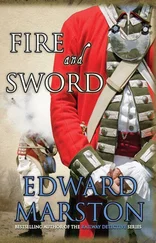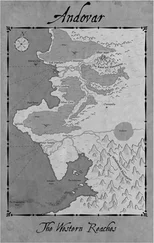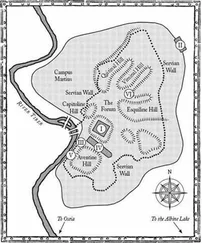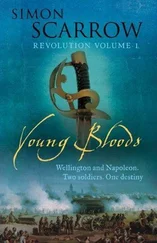‘I would be pleased to, sir.’
Kellermann reached for a pen, flipped open the inkwell, dipped the nib and signed both drafts with a flourish. He was about to hand the pen to Dalrymple when he paused, and for an instant Arthur saw a crafty expression flash across the French officer’s features before he composed his face into a respectful smile.
‘General, I think that it would be appropriate for an officer of equal rank to sign on behalf of the British.’
‘Really? Why is that?’
‘Out of respect for your rank, sir. It would not be seemly for your name to appear on equal terms with my own.’
‘Oh, I see. No, of course not.’
‘In that case, sir, may I ask General Wellesley if he would do me the honour?’
Dalrymple looked up at Arthur. ‘Well, what d’you say?’
Arthur was sorely tempted to refuse. He had had no hand in drafting the terms of the armistice, and some of the clauses were far too generous to the enemy. But if he refused it would only cause further ill will between him and his superior. He nodded, and took the pen offered to him by General Kellermann.Then the French officer slid the documents across the table and indicated the space beneath his own signature. Arthur dipped the nib in the ink, composed his hand and signed his name with neat, deliberate strokes. When he had finished he laid the pen down and sat back as the documents were whisked away. Kellermann handed one to Dalrymple and folded the other to tuck inside his coat as he stood up.
‘I must return to General Junot and tell him the good news.’
Dalrymple and Arthur rose to their feet and exchanged handshakes with the French officer before Kellermann strode out of the tent, mounted his horse, and galloped away. As Arthur watched him go, he could not help doubting the wisdom of what his commander had agreed to. But at least the French would quit Portugal. Once Portugal was established as a base of operations the British army could turn its attention to Spain, and the next, far more ambitious, phase in the campaign to eject the French from the Peninsula.
A week later General Junot surrendered the Portuguese capital to the British. Dalrymple, reinforced by Sir John Moore and another fifteen thousand troops, moved south to occupy the city. There was a brief celebration in the streets as the inhabitants cheered the departure of the French garrison, but joy soon turned to disbelief and anger when it became apparent that the ‘property’ that the enemy were taking with them, with British consent, included gold and silver plate from Lisbon’s churches and other loot taken from the royal palaces and homes of the wealthy. It was a bad business, and Arthur, who had signed the armistice, began to dread the manner in which it would be received in London. Worse still was the mood in the army. The plodding nature of Dalrymple, and the common knowledge that he had permitted the French to get the better of him, soured the mood of officers and common soldiers alike.The fact that they continued to report to Arthur in the first instance caused understandable resentment in his superiors. Arthur felt himself to be in a peculiar bind. On the one hand he had proved himself to be a fine commander who had the respect and affection of his men, which meant that it was impossible for him to serve with the army in a subordinate role. On the other, he did not wish to quit in case senior officers complained that he was unwilling to serve where he did not command.
The difficult situation was resolved for him late one afternoon in the middle of September when a message arrived from London. Somerset brought the despatch to Arthur’s office in the Lisbon house he was renting, where he had been reading through the latest correspondence from home. His brother William was full of news of the public outcry over the armistice, and his letter included a newspaper clipping that referred to Dalrymple, Burrard and Arthur himself as cowardly curs. William urged his brother to seek leave and return to London to clear his name.
Arthur looked up as Somerset rapped loudly on the door frame.
‘Come in!’
Somerset crossed the room, emerged on to the balcony and held out a sealed letter. ‘From Castlereagh, sir.’
‘Ah.’Arthur felt his heart sink a little, already guessing at the contents of the letter. He hesitated a moment before taking it from his aide and breaking open the seal. Unfolding the sheets of paper he read through them quickly and then looked out over Lisbon, glowing in the light of the late afternoon sun.
‘Well, Somerset, it seems that my campaigning days may well be over.’
‘Over?’ Somerset frowned. ‘Why, sir? What’s happened?’
‘I have been summoned home immediately, to face a military inquiry. Generals Dalrymple and Burrard are to follow. General Sir John Moore is to assume command of the army. That’s something, at least. Moore is a fine officer, and he’ll keep his blade in the Frenchman’s back.’
‘I suppose so, sir.’ Somerset frowned. ‘But it isn’t fair, sir.You are not at fault.The whole army knows it.’
Arthur raised a hand to quiet his subordinate.‘I must defend my part in the treaty.You have to hand it to that fellow Kellermann. He outfoxed us.’ Arthur smiled bitterly as he recalled the manner in which he had been coerced into signing the armistice. ‘Me most of all.’
Chapter 47
Napoleon
Vitoria, November 1808
The journey across the Pyrenees had been chilly and wet, and even though he had spent most of the day huddled beneath heavy fur robes Napoleon felt as if the cold had penetrated through to every bone in his body. His sour mood was not helped by the many hours he had spent reflecting on developments across the empire. Junot had failed him in Portugal, and now a British army had a foothold in the Peninsula. The bitter anger he had felt at the news had slightly abated at the gratifying storm of outrage the terms of Junot’s treaty had caused in Britain. Napoleon could well imagine how it must have stuck in the throat of the British to have Junot’s army given free passage back to a French port aboard the vessels of the Royal Navy.The memory passed and his mood became sullen again. He had met the Tsar at Erfurt in October and it had soon become clear that the cordial warmth which had existed between the two rulers following the meeting at Tilsit little over a year earlier was waning.
Napoleon had made lavish arrangements for the meeting, filling Erfurt with the very best entertainers to be had across Europe. But behind the glittering ceremonies, the fine theatrical performances and the spectacular concerts, the hard business of striking deals had not gone the Emperor’s way.The Tsar was well aware of the difficulties Napoleon was facing in Spain. News of the loss of Portugal to the British and the defeat and surrender of General Dupont and his entire army to the Spanish at Bailén had echoed round Europe and given fresh hope to all who opposed France and her Emperor.
Accordingly, the Tsar had claimed that the Continental System was harming Russian commerce, and he argued that some concessions to trade with Britain had to be made. He had also demanded that Napoleon reduce the Prussian reparations by twenty million francs, and that Russian annexation of Finnish lands, as well as Moldavia and Wallachia, was recognised by France. Finally, the Tsar had made no secret of his designs to seize Constantinople and gain access to the Mediterranean from the Black Sea. In return for so many concessions by Napoleon, the Tsar had agreed to support Napoleon in the event of another war between Austria and France.
The reports from French spies in Austria were alarming. Every month more and more men were being recruited into the army. Hundreds of new artillery pieces were being cast and horse-buyers were travelling across Europe to secure the best mounts for the Austrians’ growing number of cavalry regiments. It was clear to Napoleon that these were preparations for war, and if Russia could be induced to declare her support for France in such a conflict then it was possible that the Austrians might be discouraged from taking the final step. But Alexander’s guarantees to France were unconvincing and Napoleon had little faith in his ally. The only good to come out of Erfurt was the appearance that the two rulers were still allies.
Читать дальше











